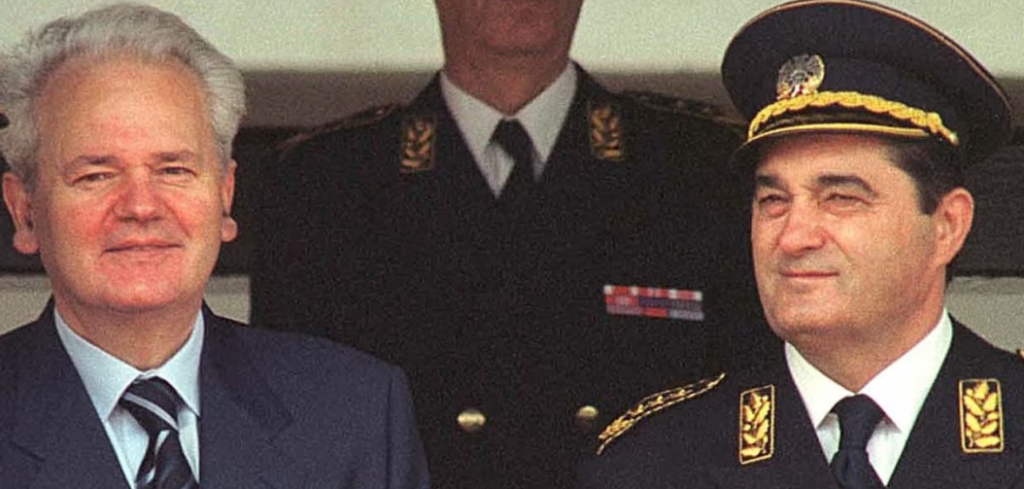
Foto: Reuters
“A hero who fought for Serbia,” not a war criminal. This is how the authorities in Serbia described General Nebojša Pavković, who arrived in Belgrade on a government plane after being released early from custody due to poor health. While this message was sent to the public from the highest state authorities, there was no mention of the crimes against Kosovo Albanians for which he was convicted.
“I don’t think this is the kind of message that the Serbian state leadership should be sending. This is not how you build good neighborly relations,” Sofija Todorović from the non-governmental organization Youth Initiative for Human Rights (YIHR) told RFE/RL.
Pavković, former commander of the Third Army of the Yugoslav Army, was sentenced to 22 years in prison for crimes against Albanians in Kosovo in 1999.
Serbian President Aleksandar Vučić announced the news of his early release on September 26 from New York, where he was attending a session of the United Nations General Assembly.
As he told reporters at the time, the Serbian government had requested Pavković’s release due to his “extremely serious health condition.”
“And then we can go and get General Pavković so that he can see the sun of a free Serbia, for which he fought so heroically in 1999,” Vučić said.
Pro-government media reported that the Serbian president spoke with Pavković by telephone before Pavković’s departure from Finland, where he was serving his sentence, to Serbia.
After landing at Belgrade airport, Pavković was transferred to the Military Medical Academy.
Sofija Todorović from YIHR says that early release due to health problems is not an unusual procedure and is in line with human rights.
However, she adds that the way officials of a country treat people convicted of mass human rights violations is questionable.
“And how they use their return to the country to spread harmful policies that have proven to be something that does not unite societies in the region,” she says.
In 2009, Pavković was found guilty on all counts and convicted of deportations, forced transfers, murders, and persecution of Albanian civilians from Kosovo in the first half of 1999.
The first-instance verdict was upheld in 2014.
In addition to him, the former chief of staff of the Yugoslav Army, Dragoljub Ojdanić, the former commander of the Pristina Corps, Vladimir Lazarević, police general Sreten Lukić, and the former deputy prime minister of the Federal Republic of Yugoslavia, Nikola Šainović, were also convicted.
The first defendant, Slobodan Milošević, died in custody, while former Serbian President Milan Milutinović was acquitted of the charges.
What does the court say?
The International Residual Mechanism for Criminal Tribunals in The Hague, successor to the Hague Tribunal, stated in its decision that there are “compelling humanitarian reasons” for Pavković’s early release under certain conditions.
The decision is based on five medical reports containing information about Pavković’s health, including diagnoses, prognosis, and treatment options.
The decision also lists the conditions that Pavković must meet until the end of his prison sentence, including a ban on contact with the media, public appearances, and political involvement.
In mid-August, Pavković’s defense filed an urgent request for his early release, stating that he would be unable to spend the rest of his life surrounded by family members who could provide him with care.
“Pavković’s physical health has deteriorated to such an extent that it poses a threat to his life,” the document states.
The deterioration of the convict’s health is taken into account when deciding on early release.
The defense requested early release even after Pavković had served two-thirds of his sentence, but this request was rejected in 2022, as explained, due to “the seriousness of his crimes and the lack of rehabilitation.”
What are they saying in Kosovo?
At the time of publication, the Kosovo government and presidency had not responded to RFE/RL’s inquiry regarding Nebojša Pavković’s release.
Behxhet Shala of the non-governmental Council for the Protection of Human Rights and Freedoms in Kosovo told RFE/RL that the victims’ families would not accept the Hague court’s decision, just as they were dissatisfied with the length of the sentence.
“We are against double standards. Anyone proven responsible for war crimes, regardless of nationality or religion, must receive an appropriate punishment. The same principles must be applied and respected during temporary release,” he said.
He added that a certain number of prisoners convicted of war crimes have reached an advanced age or have died, and that there should be no “double standards.”
He is convinced that Serbia’s involvement did not influence the court’s decision and that only the Hague Tribunal can provide a credible explanation.
Continuing the culture of denial
Sofija Todorović from YIHR believes that there were ways to facilitate the return or provide support to a sick person, instead of continuing the culture of denial.
“We are still using what was described in the judgment against General Pavković as a mass violation of human rights as something that the president of the republic calls an ‘honorable struggle’ for Serbia,” she adds.
Pavković himself does not refer to his participation in the war in Kosovo as a war crime, but rather as the “heroic defense” of Kosovo.
This was recorded in his war diary, which was promoted in 2019 at the Serbian Army House, along with a video address by Pavković. Four years later, Pavković joined a public hour at a school in Vojvodina via video link from prison. That’s when the Initiative responded, Todorović recalls, saying they were fighting against the glorification of convicted war criminals and the misuse and whitewashing of their biographies for political gain.
Jovana Kolarić from the Center for Humanitarian Law told RFE/RL that the government’s response to Pavković’s release should come as no surprise, as it has “done everything to rehabilitate those convicted of war crimes.”
“Milošević’s version of events continues, the myth of Serbian defensive and liberation wars continues, and any responsibility of political and military-police structures for crimes is denied,” she said.
As an example, she cites the reception of General Vladimir Lazarević, who arrived in Niš in southern Serbia on a government plane in December 2015, after serving two-thirds of his sentence. He was accompanied by the then ministers of justice and defense, Nikola Selaković and Bratislav Gašić.
He was met at the airport by the then Minister of Labor Aleksandar Vulin and the Chief of Staff of the Serbian Armed Forces Ljubiša Diković, where Lazarević said he had been convicted without evidence.
Later, as reported by the media, he was employed as a lecturer at the Military Academy.
Kolarić also points out that people who served prison sentences for war crimes are now highly respected commentators on certain pro-government television stations on the subject of other conflicts around the world.
“They present themselves as experts, military analysts, but there is never any discussion about who they really are and that they were tried for violating the laws and customs of war,” he adds.
The government’s attitude towards crimes in Kosovo
In December 2021, Serbian President Aleksandar Vučić stated that war crimes were committed on both sides and that there was no doubt about that.
In Tirana, he told Albanian journalists that war criminals must be tried and punished, but that it was not possible to look at things one-sidedly.
“And when you say ‘you Serbs have committed some crimes’, then I can also mention dozens of crimes that the so-called KLA committed against Serbian civilians in Kosovo, which you do not talk about,” Vučić said.
He also described the massacre in the Kosovar village of Račak, where Serbian forces killed 45 Albanian civilians on January 15, 1999, as a “fabricated crime.”
Jovana Kolarić from HLC says that after coming to power in 2012, the Serbian Progressive Party (SNS) drew its legitimacy from a revisionist approach to the past.
“And by creating a narrative, as defined by Aleksandar Vulin, that ‘the time of shame is over and the time of quiet pride has come’. This pride is not quiet at all, but consists of denying war crimes and denying judicially established facts,” she added.
She emphasizes that there were at least some opportunities and times in Serbia when it was possible to talk about what happened and when denial was not so overt from the highest state positions.
In 2013, for example, there was an exhibition in Belgrade dealing with the crime committed in 1999 by members of the paramilitary formation “Scorpions” against members of the Bogujevac family in Podujevo in north-eastern Kosovo.
The exhibition was led by three family members who survived the massacre, and was attended by the then Serbian Prime Minister Ivica Dačić, while the police removed about 50 people who were protesting in front of the gallery.
Former leaders of the Kosovo Liberation Army are also on trial before the Special Court for Kosovo in The Hague.
During the war, around 13,000 people were killed or disappeared in Kosovo, and around 1,600 are still missing./Rferl/

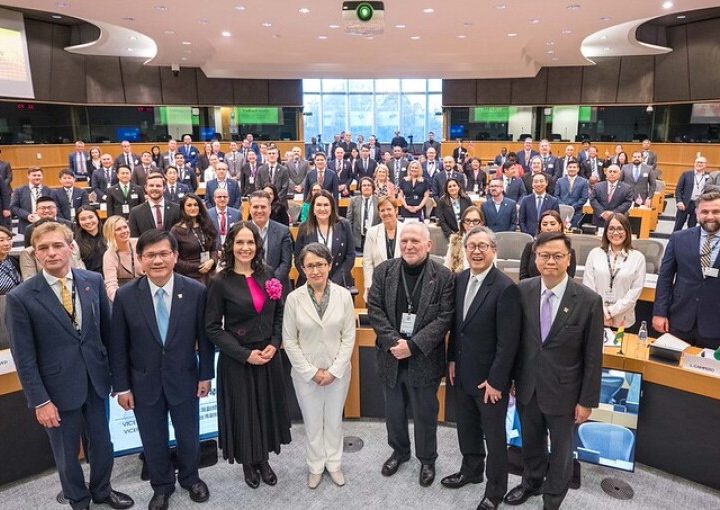 Japan and Europe come together in support of Taiwan
Japan and Europe come together in support of Taiwan 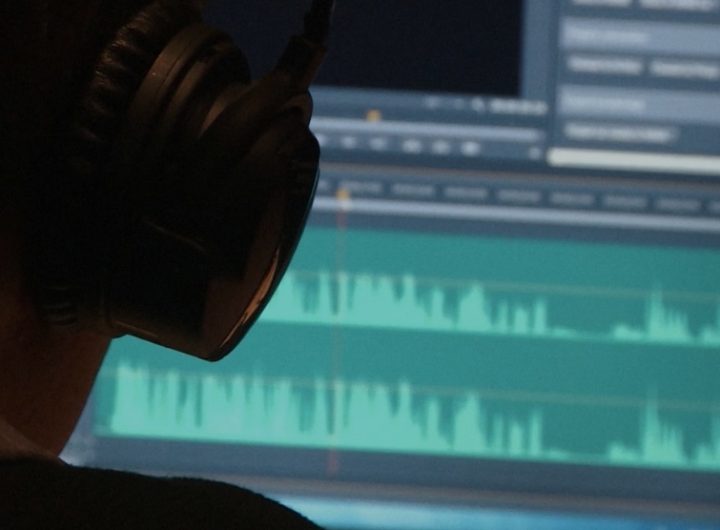 BIRN journalist: Media workers in Serbia exposed to digital attacks and secret surveillance – most cases go unnoticed
BIRN journalist: Media workers in Serbia exposed to digital attacks and secret surveillance – most cases go unnoticed 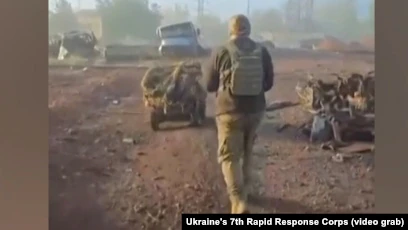 Robot Soldiers: Ground Drones On The Ukrainian Front Lines
Robot Soldiers: Ground Drones On The Ukrainian Front Lines 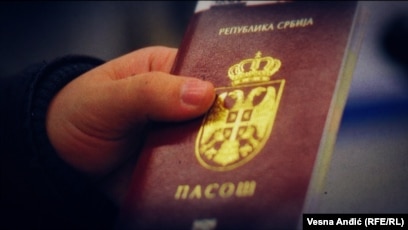 Possible security risks’ in serbian passports for russian citizens
Possible security risks’ in serbian passports for russian citizens 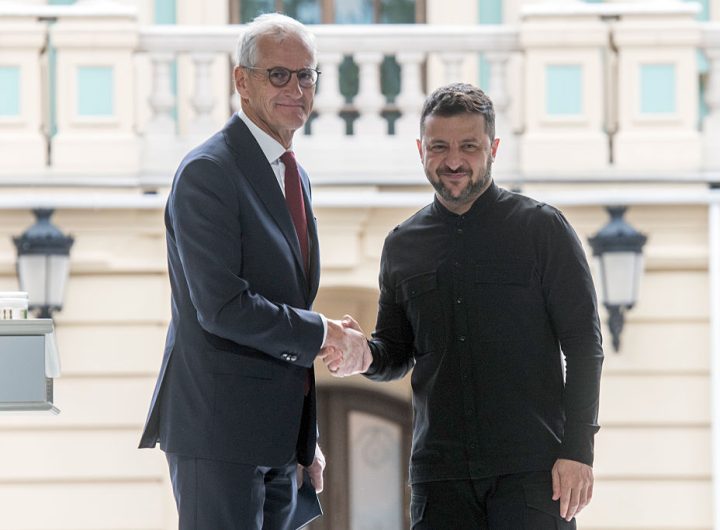 Norway urged to tap €1.8tn fund to help EU unlock Ukraine loan
Norway urged to tap €1.8tn fund to help EU unlock Ukraine loan 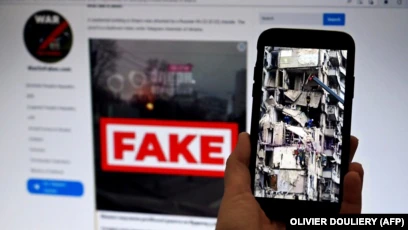 EU Launches ‘Democracy Shield’ to fight russian disinformation and protect electoral process
EU Launches ‘Democracy Shield’ to fight russian disinformation and protect electoral process